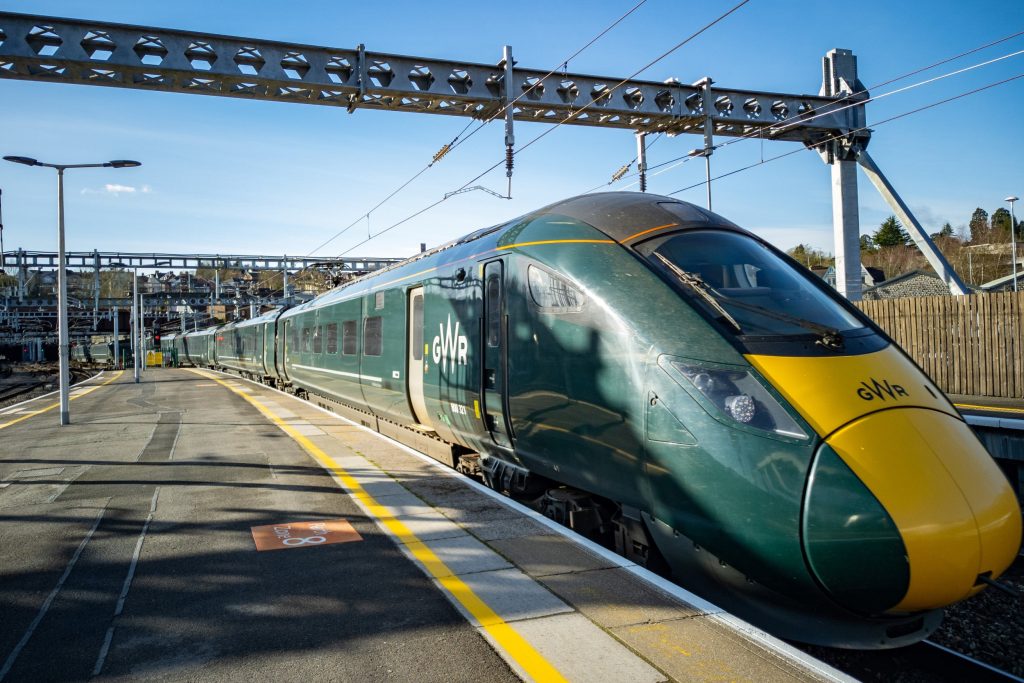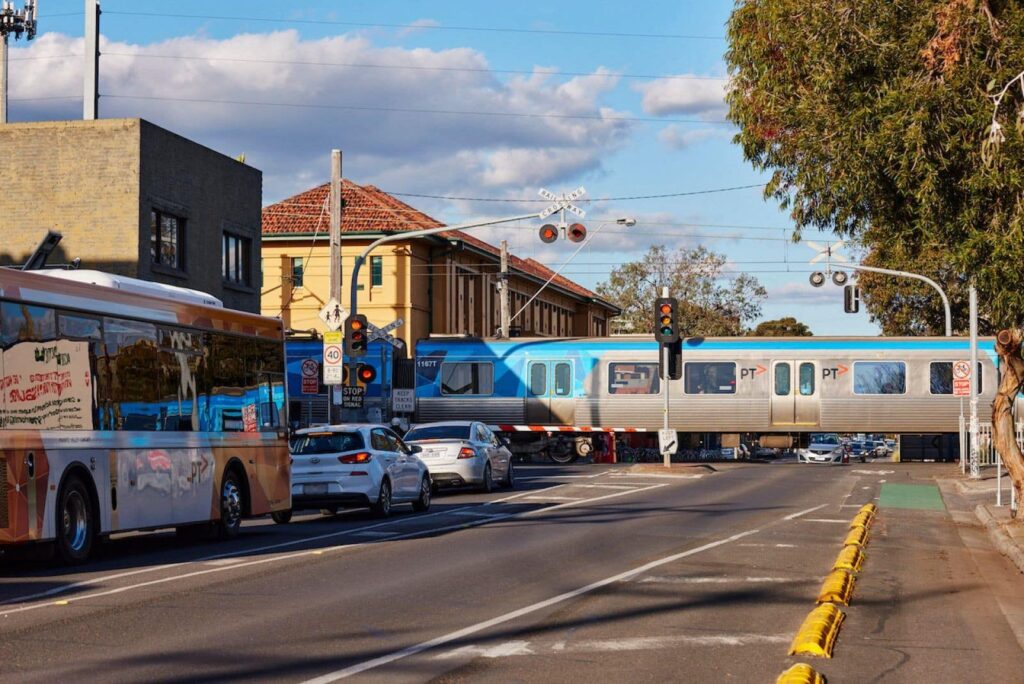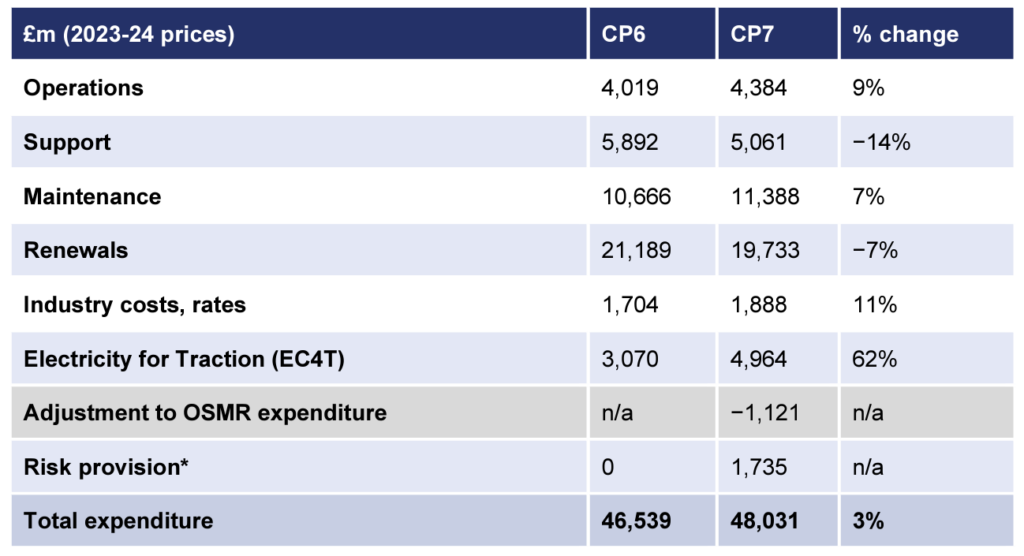ORR says Network Rail Wales & Western performance ‘not good enough’, pinpoints asset renewals

This post was originally published on this site

Performance in Network Rail’s Wales and Western region “has been worsening […] since 2021” according to an investigation by the Office of Rail and Road (ORR), which focused on asset maintenance and renewal.
Passengers and freight customers have been blighted by poor performance in the region that “has not been good enough” according to the ORR, which said it “formally raised [its] concerns over train service performance with Network Rail in March 2022 and carried out enhanced monitoring – including requiring the region to develop a consolidated performance recovery plan”.
This plan was delivered to ORR in August 2022 and Wales and Western has reported on progress in delivering the plan since. “However, delivery of the plan did not lead to any significant improvement in the region’s overall performance,” ORR said.
ORR pointed to the fact that “compared to performance at the end of 2019-20 (the end of the first year of the control period 6 (CP6) and prior to significant impact from the pandemic), the percentage of trains arriving on time fell from 65.1%% to 58.6% at the end of 2023-24”.
Additionally, train cancellations have risen from 2.6% to 4.9% during that period.
With performance having remained unsatisfactory, ORR launched its investigation in November 2023 into the delivery of train service performance in the region. The investigation focused on network management, asset management and sufficiency of resources.
Despite its wide-ranging criticisms of Network Rail’s regional performance, the ORR said “it is clear there is a strong drive to turn performance around in the region.”
Recent issues in Network Rail’s Wales & Western region
A series of delays to journeys hit the region in January 2024, due to cracked rails, points failures and damage to overhead wires.
Also in January, the Department of Transport released data under the Freedom of Information Act showing that Network Rail was responsible for 361 disrupted days on the London Paddington to Reading route from 1 December 2022 to 30 November 2023.
At the time of the January incidents, a spokesperson for the Office of Road and Rail said: “Train performance in the Wales and Western region has continued to deteriorate, which is why in November we launched an investigation to assess whether Network Rail is complying with its licence obligations in the Wales and Western region and whether it is doing everything reasonably practicable to deliver train service performance.”
Results of investigation
In its final report following the investigation, ORR said it had “not identified a singular issue driving poor train service performance in Wales and Western which if resolved would turn around performance”.
ORR said the causes of poor performance included factors both within and outside of Network Rail’s control. ORR said Network Rail said issues often stemmed from “fatalities/trespass, track faults, points failures, severe weather, axle counter failures and delays associated with signalling”.
Turning to governance, ORR said: “The regional accountability structure does not always drive joined-up decision making on performance, for example ensuring engineering decisions are cognisant of optimising train performance outcomes.
“Infrastructure delivery sits outside of the region’s route governance, with no clear, structural line of accountability from infrastructure delivery to the day-to-day delivery of train service.”
ORR said Network Rail had “recently reviewed its operating model and is considering devolving accountability for asset management as a result”.
The regulator said the railway company “must review whether its current structure, with infrastructure management separated from route accountability, supports effective decision making and performance management”.
Asset management
A significant proportion of ORR’s investigation focused on asset management. ORR’s recommendations were split across recommendations to Network Rail and wider industry. The full list of recommendations can be found at the bottom of this article.
ORR said: “Industry should review how it can ensure processes for planning major service upgrades fully consider the cumulative impact of successive major changes, including on asset condition and reliability, when identifying supporting work required.”
Major service upgrades have included electrification under the Great Western Route Modernisation Programme, the introduction of services on the Elizabeth line and the introduction of newer, faster trains in the region.
ORR said Network Rail recognised “that it underestimated the impact that the new Elizabeth Line services and the increased Great Western Railway (GWR) and freight services would have on its assets and operations.
“It carried out a cross-industry programme of works to prepare for the introduction of Elizabeth Line services (Project Fusion) – with partial success – but it is now clear that a programme of additional engineering work and operational change is required to support train performance.”
Under recommendation NR4, ORR said: “Network Rail must carry out a retrospective review of its timetable modelling carried out for the introduction of Elizabeth Line services, to ensure it learns lessons and applies these in planning for future major changes – such as the introduction of HS2.
“Network Rail should consider whether its timetable modelling capability should be augmented to take better account of the change’s impact on asset condition, reliability and resilience – and therefore train performance – rather than core performance of the timetable alone.”
ORR acknowledged that “there is a backlog of maintenance and renewals work at critical locations on the network, and a need for a strategic approach to engineering access”.
The regulator reviewed data using the Composite Reliability Index (CRI) which is weighted by asset criticality.
According to the CRI, ORR said: “Asset reliability has been particularly affected by failures in heavily-trafficked, critical areas, where more repeat faults have occurred. On this measure, track reliability is particularly poor.”
Project Brunel
The ORR review revealed more details about Network Rail’s Project Brunel. The project had been named on social media but Network Rail had not publicly revealed any more information about it.
In ORR’s report, it describes Project Brunel as a “£140M, 18 month programme of works” and said it “aims to address asset reliability problems between Paddington and Airport Junction and strategic sites across the Western route”.
ORR said that as part of Project Brunel, Network Rail “is in the process of agreeing arrangements with operators for increased access windows to carry out the works”.
It added: “This must be fully scoped and delivered effectively to address backlogs of work, improve asset condition and reliability and therefore deliver a longer-term improvement in performance on a critical part of the route.
“Network Rail must now set out a timebound plan and milestones for the works that will be delivered.”
A key aspect of ORR’s comments about Project Brunel and wider Network Rail performance issues have been around securing access to the railway.
ORR said: “We understand that the increased access as part of Project Brunel is to support its delivery (and is therefore shorter-term in nature). Any long-term additional access requirements need to be fully justified, properly planned and consider the needs of all users including freight.
“A more significant programme of asset refurbishment, renewal and resilience works should have been delivered prior to introduction of Elizabeth Line services to support the changed railway operational environment and to protect performance.
“This is a specific focus of Project Brunel.”
Climate breakdown
While many of the issues raised by the ORR’s investigation relate to routine operation of the railways, climate breakdown was acknowledged as a significant cause of problems for Network Rail’s Wales & Western region.
ORR said: “More frequent and more extreme weather conditions caused by climate change are already affecting the rail network and will continue to do so. Delays associated with weather have been increasing in Wales and Western.”
In a rare area of praise, ORR said “Wales and Western’s approach to adaptation and resilience of assets to the impacts of climate change has improved during CP6, as evidenced through the development of improved Weather Resilience and Climate Change Adaptation (WRCCA) plans.”
ORR went on to say: “Overall, we are satisfied that Wales and Western is taking appropriate actions to improve resilience to climate change and extreme weather. It should continue to deliver on current workstreams, respond to emerging risks and deliver on its WRCCA plan for CP7.”
It warned, however, that the regulator would be “keeping this under close review”.
Network Rail response
Network Rail Wales and Western regional managing director Rob Cairns said: “We recognise that train performance hasn’t been at the level that passengers expect.
“More trains are running on our tracks than ever before. As well as managing wear and tear on the railway infrastructure, this means that more trains are affected whenever we experience an incident, regardless of whether it is due to weather conditions, trespass or a problem with the infrastructure.
“We are continuing to work closely with our industry partners to do everything we can to provide a more reliable railway for passengers and freight. We’re already seeing encouraging signs that our performance improvement plan is having a positive impact across the region.
“We’ve engaged openly and transparently with the ORR throughout their investigation and will now consider their decision and our next steps.”
ORR recommendations for Network Rail and Wales and Western Region
Recommendation NR1: Network Rail must improve its understanding of why the impacts of incidents are increasing (with more delay per incident) and then review its plans to ensure they target relevant factors within its control. To improve primary delay and overall performance outcomes, it should measure, report and manage quantifiable elements of operational response that are within its control across the Wales & Western region.
Recommendation NR2: Network Rail must establish clear timebound milestones for its plan to sustainably improve asset reliability and sustainability on the Western route out of Paddington (Project Brunel) and must track and report delivery against these. It must incorporate the more holistic approach being proposed for Project Brunel into its Performance Recovery Plan to deliver sustainable improvements across the region.
Recommendation NR3: Wales & Western’s leadership must focus on strong performance governance and accountability to drive a performance-led culture. In particular, it must review whether its current structure, with infrastructure management separated from route accountability, supports effective decision making and performance management. In the past, Western has primarily been focused on long distance passenger and freight flows – in recognition that there are now more regional stakeholders with different priorities (including metro-style services), Wales & Western should drive an organisational and cultural change programme to ensure it better manages its stakeholders’ varied and potentially competing needs.
Recommendation NR4: Network Rail must carry out an ex-post review of its timetable modelling carried out for the introduction of Elizabeth Line services, to ensure it learns lessons and applies these in planning for future major changes – such as the introduction of HS2. Network Rail should consider whether its timetable modelling capability should be augmented to take better account of the change’s impact on asset condition, reliability and resilience – and therefore train performance – rather than core performance of the timetable alone.
Recommendation NR5: Network Rail should consider how best to drive greater cross-industry engagement on delivering system-wide performance, including consideration of a cross-industry senior governance forum to improve alignment on desired industry outcomes and resolve disputes.
Recommendation NR6: Network Rail must review its ongoing access requirements and arrangements for delivering inspection, maintenance, renewal and repair works (building on the approach being developed for Project Brunel) to ensure it can manage its assets in a sustainable way while meeting the needs of its customers. This should include looking at best practice being adopted in other routes which are similarly heavily-trafficked and assessing the scope for better use of tools and technology.
Recommendation NR7: Network Rail should deliver on its plans to minimise causes of delay arising from poor asset reliability. This should include continuing to target the root causes that lead to temporary speed restrictions on any line of route and to ensure it is maximising its use of leading indicators of future problems.
Recommendation NR8: In support of its strategic plan to improve asset reliability and sustainability on the Western route out of Paddington (Project Brunel), Network Rail must provide a clear, timebound plan for renewing the overhead line headspans from Paddington to Heathrow Airport Junction and a mitigation plan to ensure reliability until that work is complete.
Recommendation NR9: Network Rail should continue to focus on ways to maximise timetable resilience to basic perturbation within the possibilities of the existing specification, learning from best practice in other routes.
Recommendation NR10: Network Rail must review how it leads learning from complex and multilateral delay incidents to make sure that recommendations are fully and effectively implemented, and knowledge is shared across the industry. The process must include reviewing common themes across the portfolio of incident reviews.
Recommendation NR11: Network Rail should continue to deliver improved operational and signalling capability, establishing and delivering against a clear timebound plan and developing a suite of indicators to measure capability. To support development of its operational capability. Network Rail should ensure that future significant operational changes – such as the adoption of new decision support technologies – have appropriate business change programmes (including consideration of human factors) to support their introduction.
ORR recommendations for Industry
Recommendation to industry IN1: Industry should review how it can ensure processes for planning major service upgrades and fully consider the cumulative impact of successive major changes, including on asset condition and reliability, when identifying supporting work required.
Recommendation to industry IN2: Industry should consider how to provide greater clarity about the roles, responsibilities and accountabilities of the ESG and related specification processes to help drive improvements in oversight of, and planning for, major change.
Recommendation to industry IN3: Industry should consider how to drive forwards improvements to train performance in Wales & Western which rely on cross-industry collaboration. This should include securing greater strategic alignment and shared objectives that can be cascaded to those delivering day-to-day service, strengthening contingency plans for dealing with delays while retaining flexibility in their application, further roll out of technology to improve incident response and service recovery and improving cross-industry learning from incidents.
Like what you’ve read? To receive New Civil Engineer’s daily and weekly newsletters click here.





Responses